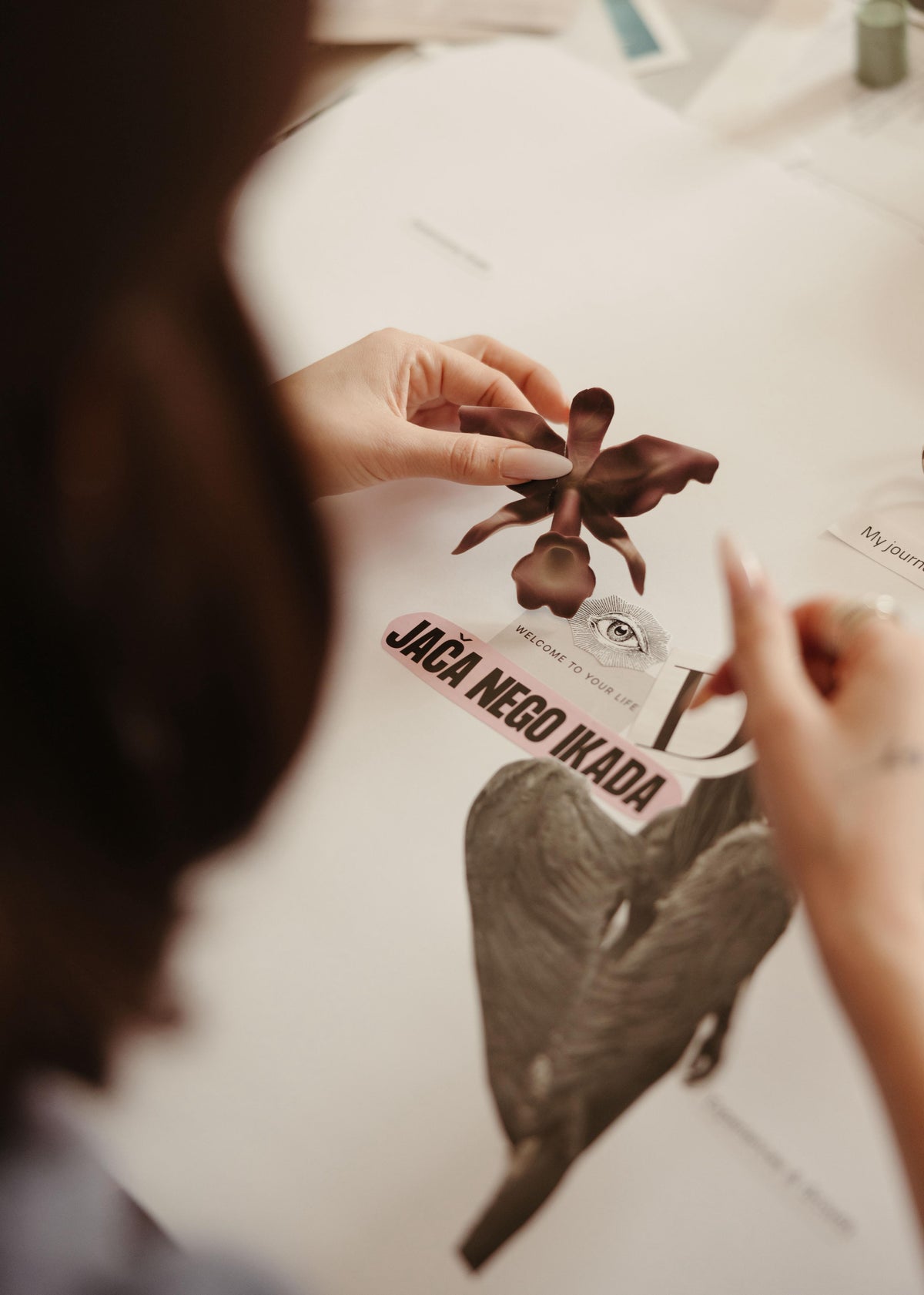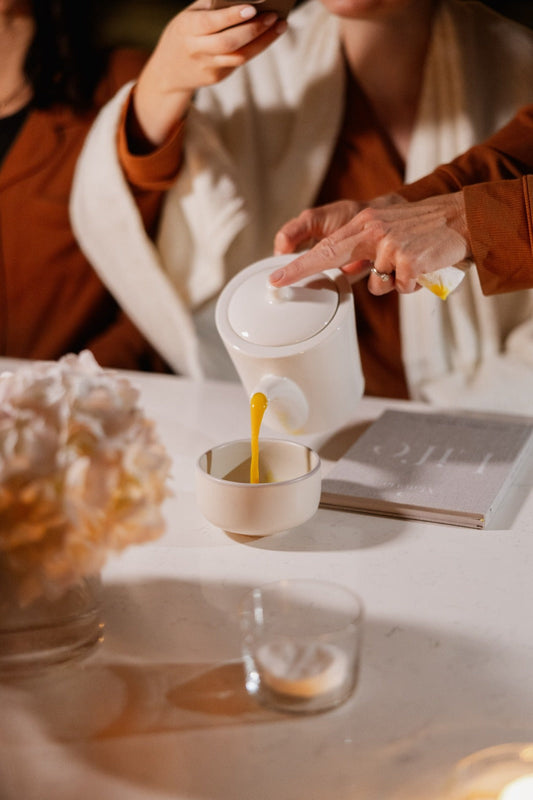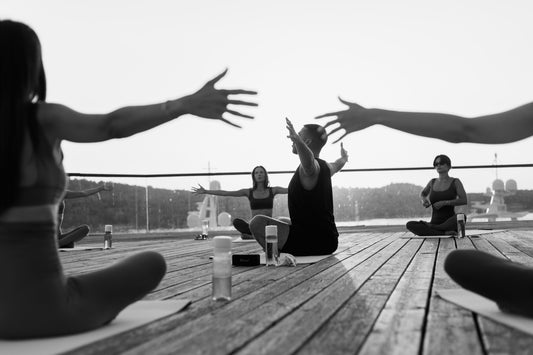The Quick-Success Illusion: How to Embrace the Process
On slowing down, returning to yourself and the real meaning of inner growth
We often think we’re late to our own lives - that someone else “made it” because they knew something we don’t. That we slept through our big break, our pivot, our success. And beneath that thought sits a whisper: something must be wrong with me. Maybe I’m too slow. Too unclear. Not decisive enough. Not far enough along - and it’s all my fault.
What hurts most is the sense that we’re not where we should be - in a better life, a steadier relationship, a stronger body, a safer version of ourselves. That mismatch between the effort we feel inside and the outer silence that confirms nothing creates tension. From there grows the doubt: Can I even change?
Our chance to prove ourselves to others and to ourselves suddenly feels lost.

Why does this happen - and why is it more common today?
Social media shapes the impression that change happens in three easy steps. Success appears overnight. Everyone else seems to have clicked with the right routine, job or partner while we’re still searching. And we no longer compare ourselves to people we know but to curated snippets of strangers’ lives. Comparison is no longer a quiet, inner thought; it’s public, relentless and constant.
Maybe nothing is wrong with us - maybe it’s our expectations
Embracing the process means learning how we behave while the outcome is uncertain - and, more importantly, refusing to sabotage ourselves in that uncertainty. It means not quitting on ourselves just because we can’t have everything right away.
These are the tiny yet concrete things that help:
-
Give yourself permission to start over - as many times as needed.
The path is never linear; slips are normal. Some days we choose what we swore we’d abandoned. Momentum stalls. Meaning evaporates. To embrace the process sometimes means returning - for the hundredth time - without shame. -
Identify the actions that bring you back to yourself.
For one person it’s walking, for another a breakfast ritual or journaling. These things have no marketing value, yet they’re deeply personal anchors. The point isn’t perfection; it’s knowing what can bring us back when we drift. -
Stop analysing everything to death.
The process can’t breathe under constant measurement. If we obsess over how far we’ve progressed - whether we’re closer to the goal, we choke the very change we’re chasing. Some shifts can’t be rationalised; they’re only felt with distance, when we realise we no longer react the way we used to. -
Choose daily, not dramatically.
Big decisions have weight, but the real work lives in everyday choices:
– Will we sleep or scroll?
– Nourish ourselves or just survive?
– Set boundaries or wait for everything to snap?
Those small decisions lay the groundwork because the process doesn’t ask us to be brand-new people - only to stay present even while we’re unfinished. -
Don’t do everything at once.
Trying to “fix your life” in a week usually ends in exhaustion and a quick slide back to old patterns. The process dislikes aggression and maximalism; it loves continuity. One thing at a time. Not a perfect day - a better week. Not a perfect self - a self that doesn’t give up.

Well-being isn’t a trophy; it’s the runway the journey needs to last
Well-being isn’t proof we’ve made it; it’s support so we can stay in the process even when we have no idea where we’re going. It’s everything that holds us while we’re figuring things out - never perfect days, but small routines that keep us from falling apart.
-
A walk when we’d rather shut down.
-
A warm cup of tea when “eating right” feels impossible.
-
A pressure-free shower just to come back to our bodies.
Growth is only possible when we have somewhere soft to land as we pivot, and well-being is that soft place.
In moments when we don’t know what we think or feel, the body often knows more than we do. While we try to chart our path and measure whether change is “enough”, the body answers wordlessly - in tension, pain, dizziness, fatigue, insomnia. That’s what we overlook when we talk about growth: it’s not merely cognitive. It doesn’t live in affirmations; it happens in the body that must carry it.
So well-being isn’t an aesthetic add-on to personal development. It isn’t a phase that starts once everything else is sorted. It’s the baseline. The frame inside which we can survive our own instability.

We’re already growing - growth isn’t something we show off
Real growth is the moment we no longer react to things that once knocked us off balance. When we stop seeking validation for every step. When we live not to be right but to be at peace.
Real growth is when we stop rushing: choosing what’s truly ours instead of what’s fastest. Choosing presence over explanations.
Success is the moment we stop running from ourselves
Success has nothing to do with what we achieve or how many people notice. It’s the ability to stay in contact with ourselves while things are unresolved, to hold the inner thread even when we don’t know where it leads, to recognise silent intervals as vital - not wasted.
Maybe there’s no perfect moment when we can declare, “Now I’ve succeeded.” Perhaps something matters more: the ability to remain centred in what’s unfinished, unclear, uncertain - yet undeniably ours.











